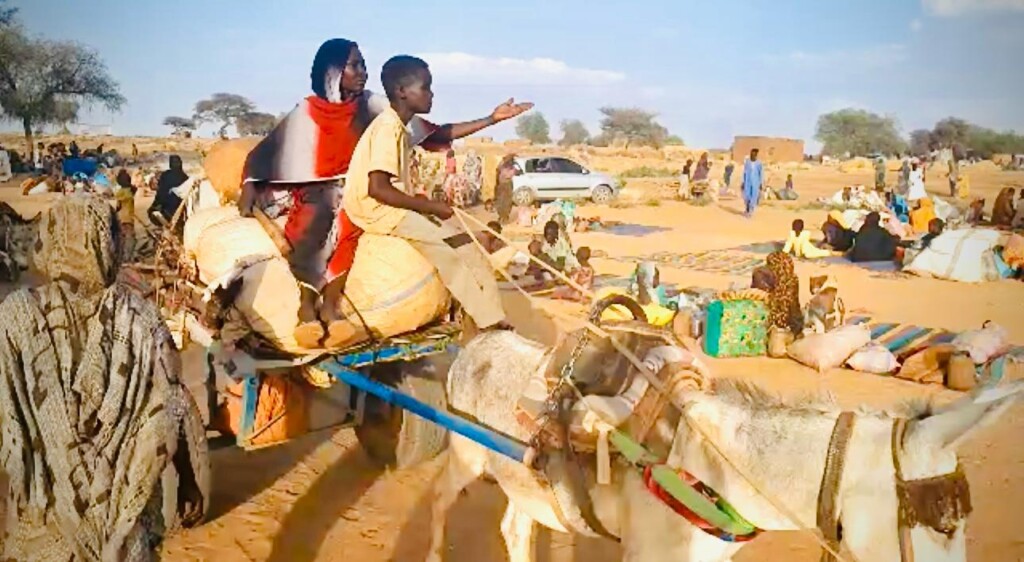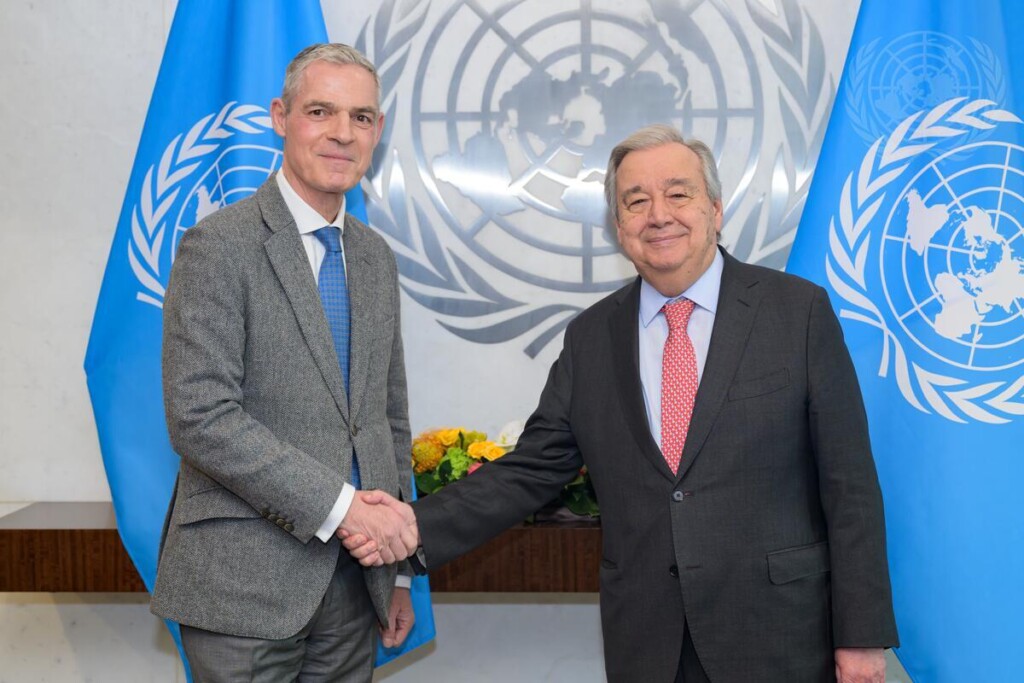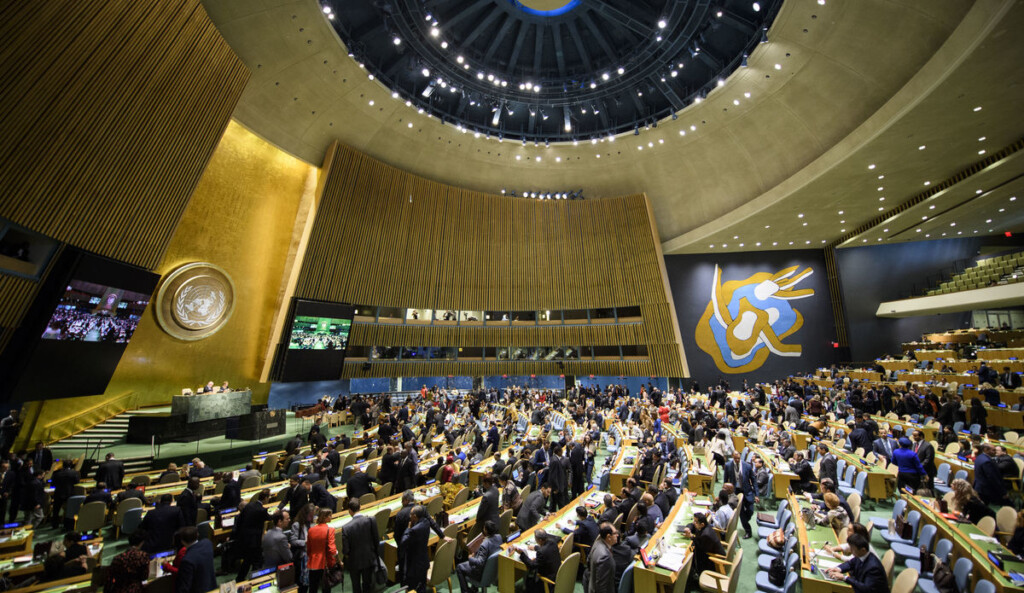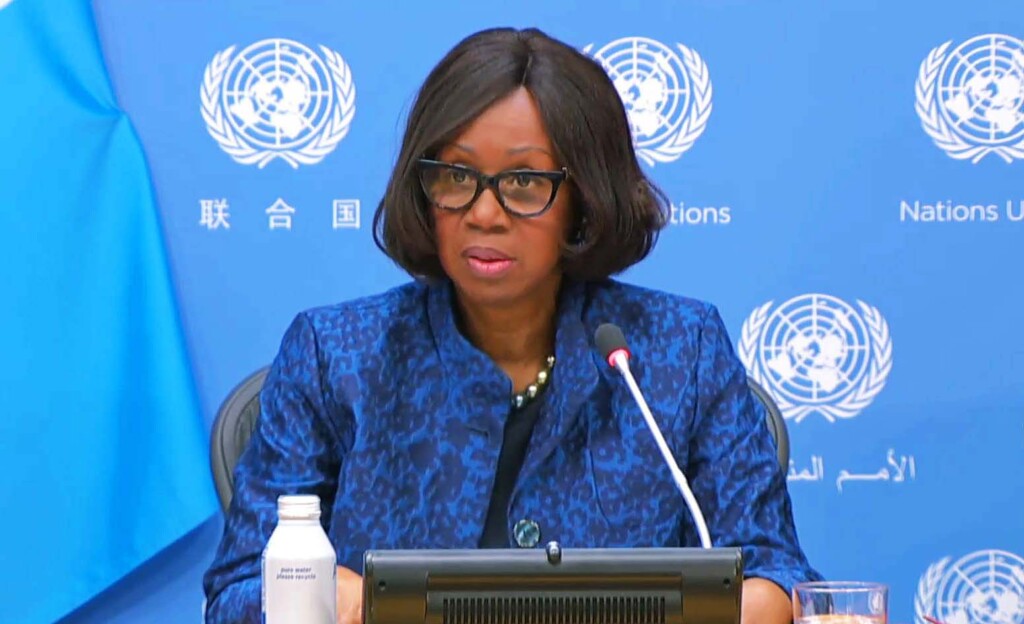UN condemns North Darfur bloodbath: call for all belligerents “to comply with their obligations under international law”

People displaced from El Fasher in North Darfur moving towards Tawila (Photo: General Coordination of Displaced Persons and Refugees)
In the wake of escalating hostilities in and around El Fasher, capital of North Darfur, resulting in a new wave of civilian casualties and mass displacement, the UN Security Council has condemned the attacks on El Fasher as well as on Zamzam and Abu Shouk camps, while today, the UN Resident and Humanitarian Coordinator in Sudan reiterates her call to all parties to the conflict to respect international humanitarian law, and appeals to international donors for “exceptional, rapid funding support to maintain the humanitarian response in North Darfur.”
Following ongoing reports over the past days, the escalating violence and “the largest humanitarian crisis in the world,” has prompted a chorus of international condemnation, with renewed calls for a ceasefire.
On Wednesday, the General Coordination of Displaced Persons and Refugees confirmed the arrival of almost 3,000 people displaced from El Fasher in the area of Tawila, 50 kilometres to the west, over the last two weeks. Meanwhile, satellite imagery in a report published by the Humanitarian Research Lab (HRL) at the Yale School of Public Health on April 16 shows the effects of fires and destruction caused by artillery shelling and RSF attacks. The images, taken between April 10 and 15, show plumes of smoke rising in different parts of the city due to artillery shelling and drone attacks. Commentators report that Zamzam camp itself has been ‘obliterated’.
UNSC
A statement by UN Security Council (UNSC) President Jérôme Bonnafont this week, expresses “deep concern over escalating violence, including in and around El Fasher,” and strongly condemned the repeated attacks on El Fasher as well as on Zamzam and Abu Shouk camps.

(Photo: UN)
Recalling resolution 2736 (2024), Council members reiterated their demand that RSF halt the siege of El Fasher and their call for an immediate halt to the fighting and for de-escalation in and around El Fasher.
Council members called on the parties to the conflict “to protect civilians and comply with their obligations under international law, including international humanitarian law, and fulfil resolution 2736 (2024), as well as abide by their commitments under the Jeddah Declaration.”
They also called for RSF as well as all perpetrators of attacks on civilians, and human rights violations and abuses, in Sudan to be held accountable.
‘The UN Security Council calls upon all parties to the conflict to respect and protect humanitarian personnel, their premises and assets in accordance with their obligations under international law…’ – UNSC President Jérôme Bonnafont
The members of the Security Council called upon all parties to the conflict to respect and protect humanitarian personnel, their premises and assets in accordance with their obligations under international law.

(File photo: UN)
They also called on the parties “to allow and facilitate, in a manner consistent with relevant provisions of international law and the United Nations guiding principles of humanitarian assistance, including humanity, impartiality, neutrality and independence, safe and unhindered humanitarian access into and throughout Sudan”.
UN Humanitarian Coordinator

(File photo: UN)
In a new statement today, the UN Resident and Humanitarian Coordinator in Sudan, Clementine Nkweta-Salami, laments that “the humanitarian community in Sudan is facing critical and intensifying operational challenges in North Darfur, driven by the forced and large-scale displacement of civilians away from established infrastructure and humanitarian services.”
Nkweta-Salami highlights that “these challenges have severely disrupted existing humanitarian operations and exponentially increased the vulnerability of hundreds of thousands of people.”
‘Population movements are increasingly fluid, unpredictable, and fuelled by ongoing hostilities and fears of a broader offensive on El Fasher…’ – UN Resident and Humanitarian Coordinator in Sudan, Clementine Nkweta-Salami
The humanitarian coordinator confirms that the most recent hostilities “have pushed an estimated 400,000-450,000 people toward Tawila, areas surrounding Jebel Marra, and further. These population movements are increasingly fluid, unpredictable, and fuelled by ongoing hostilities and fears of a broader offensive on El Fasher. The situation is further compounded by rising levels of food insecurity, with displaced populations increasingly cut off from supply chains and assistance, placing them at heightened risk of epidemic outbreaks, malnutrition and famine.”
‘UN and NGO actors must be granted immediate and sustained access to these areas to ensure life-saving support can be delivered safely and at scale…’ – UN Resident and Humanitarian Coordinator in Sudan, Clementine Nkweta-Salami
Nkweta-Salami laments that “the humanitarian community is facing multiple operational challenges, preventing us from responding appropriately. Despite our repeated appeals, humanitarian access to El Fasher and surrounding areas remains dangerously restricted. The UN and NGO actors must be granted immediate and sustained access to these areas to ensure life-saving support can be delivered safely and at scale.”
She points out that proximity-based humanitarian assistance must be delivered and sustained through already established infrastructure, which is far better equipped to respond comprehensively and effectively. “Preserving access to these systems is critical to prevent further forced displacement and to ease the burden on already overstretched areas like Tawila and surrounding host communities,”: she says.
Underscoring that “the humanitarian system is currently overstretched,” Nkweta-Salami urgently calls on donors to funding, that is critical to support first responders, mobilise life-saving supplies, and sustain emergency response operations.
“The scale and gravity of reported violations, including direct attacks on IDPs and humanitarian personnel, are unacceptable. Civilians must never be a target. Forced displacement must never be a precondition for accessing life-saving aid,” Nkweta-Salami says.











 and then
and then